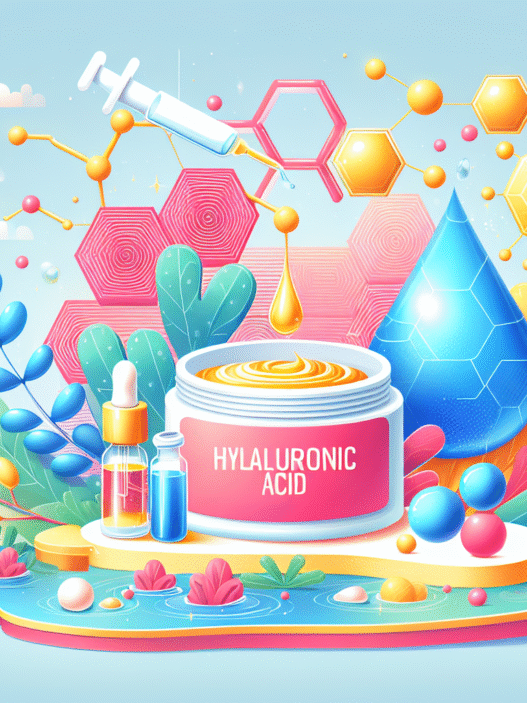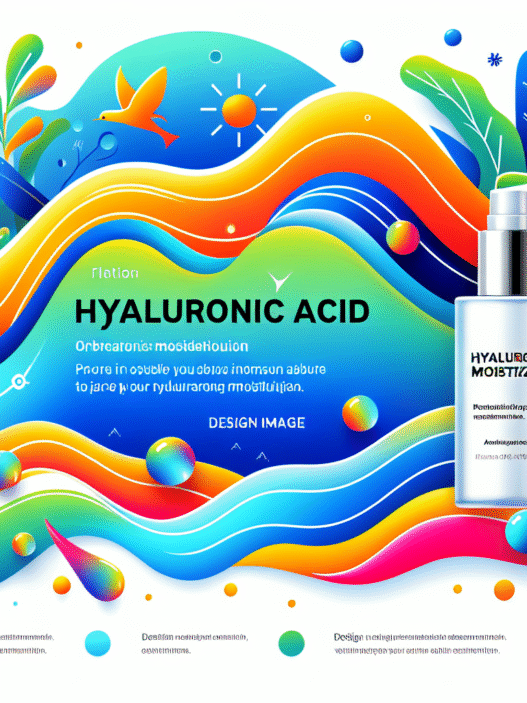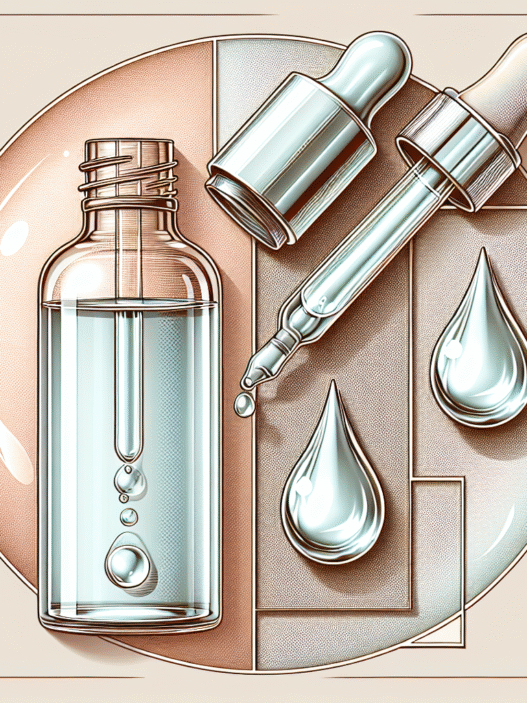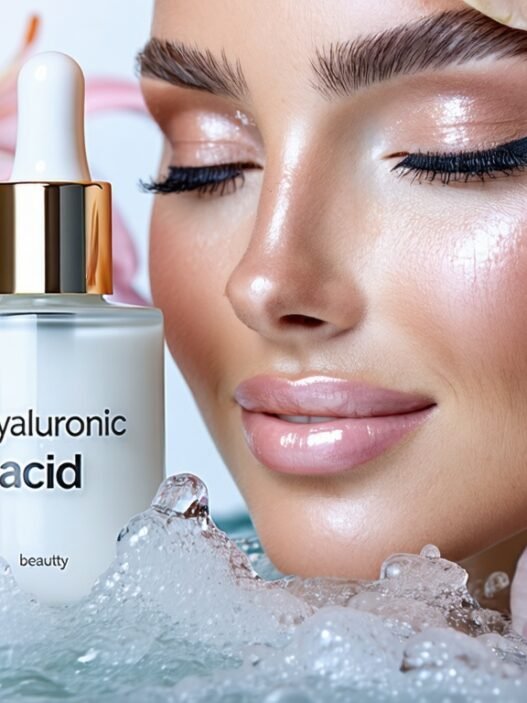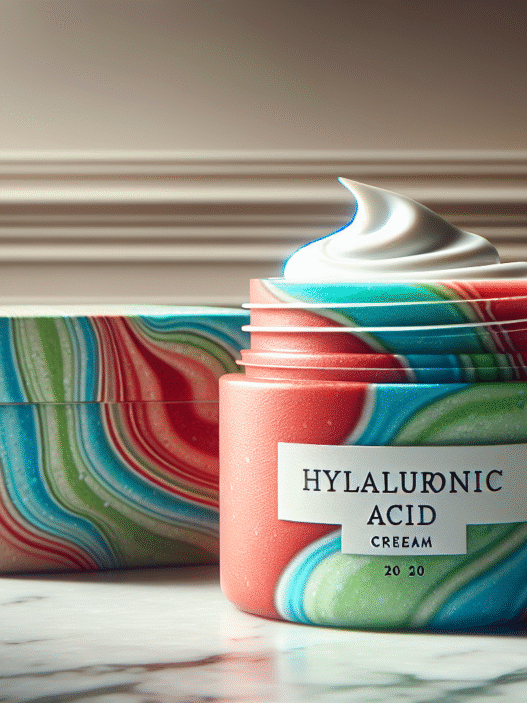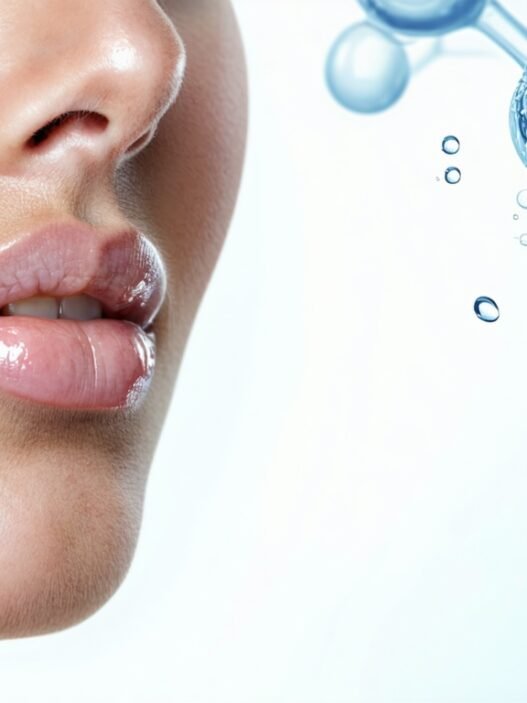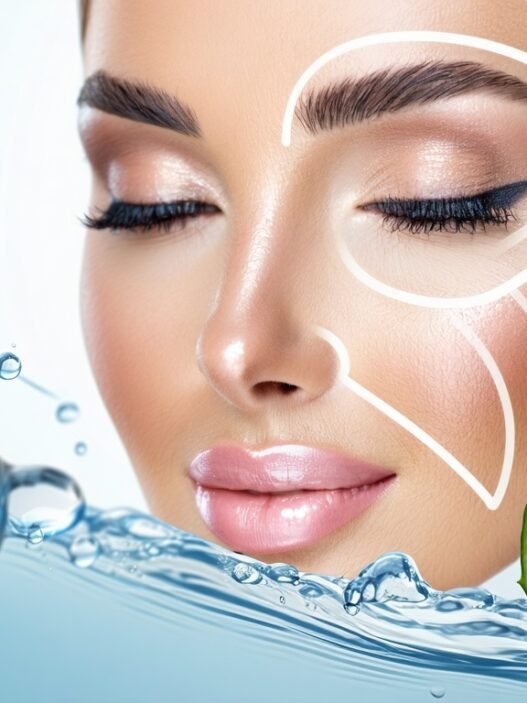Understanding Hyaluronic Acid
Introduction to Hyaluronic Acid
Hyaluronic acid (HA) is a large molecule that is naturally produced by the body, with nearly half of it being concentrated in the skin. It is renowned for its remarkable ability to hold up to 1,000 times its weight in water. This unique characteristic enables hyaluronic acid to bind with water molecules, helping to retain moisture within the skin (Healthline).
As a key component in dermatology and skincare, hyaluronic acid plays a crucial role in maintaining skin hydration, promoting elasticity, and fostering skin renewal. As such, it has become a popular ingredient in various skincare products designed for skin rejuvenation and anti-aging benefits.
Role of Hyaluronic Acid in Skin Health
Hyaluronic acid significantly impacts skin health by enhancing hydration and promoting a youthful appearance. Its ability to retain moisture contributes to a tighter and more resilient complexion. In fact, it has been noted for its effectiveness in reducing the visibility of fine lines and wrinkles by upholding moisture levels, which creates a natural plumping effect on the skin (Cosmedica Skincare).
Table 1 summarizes the key benefits of hyaluronic acid in skin health:
| Benefit | Description |
|---|---|
| Hydration | Retains moisture, providing a plumper appearance |
| Skin Elasticity | Contributes to firmer and more resilient skin |
| Improved Complexion | Tightens the overall tone and texture of the skin |
| Reduction of Fine Lines and Wrinkles | Helps minimize signs of aging by promoting smoother skin |
| Enhanced Skin Cell Production | Supported hydration can stimulate increased skin cell turnover |
Hyaluronic acid also serves functional purposes, as it can attach itself to cells, facilitating the targeted delivery of medications and enhancing the absorption of water in moisturizing products. This makes it a versatile ingredient in both skincare and therapeutic applications. For individuals interested in maintaining youthful skin, understanding the benefits of hyaluronic acid and skin renewal is essential for effective anti-aging strategies.
Benefits of Hyaluronic Acid
Hyaluronic acid (HA) is celebrated for its remarkable benefits in skincare, particularly in promoting hydration, enhancing skin health, and improving elasticity. Below are key benefits associated with its use.
Hydration and Moisture Retention
Hyaluronic acid is renowned for its extraordinary ability to hold up to 1,000 times its weight in water, which makes it essential for maintaining skin hydration. When applied to the skin, it binds to water molecules, effectively trapping moisture and preventing dryness. This results in plumper, more radiant skin.
| Property | Amount Held |
|---|---|
| Water Retention | Up to 1,000 times |
This powerful moisture-retaining capability helps support a healthy skin barrier, ensuring that the skin remains supple and hydrated. Many skincare enthusiasts turn to hyaluronic acid serums and moisturizers enriched with HA for maximizing hydration levels.
Skincare Benefits of Hyaluronic Acid
Hyaluronic acid offers numerous skincare benefits beyond hydration. Its unique properties help improve the overall health and appearance of the skin. During topical treatment, hyaluronic acid assists in tightening the complexion, making skin appear firmer and more youthful. Research shows that hyaluronic acid with a molecular weight around 130 kDa has been found particularly effective, improving skin elasticity by up to 20% over one month (Healthline).
| Benefit | Effect |
|---|---|
| Improved Skin Elasticity | Up to 20% after one month |
| Enhanced Complexion Firmness | Tighter skin tone and facial contours |
Using hyaluronic acid cream regularly in skincare routines can further enhance these benefits, contributing to a smoother texture and diminished appearance of fine lines.
Improving Skin Elasticity
One of the key advantages of hyaluronic acid is its role in boosting skin elasticity. As skin ages, it naturally loses hydration and elasticity, leading to sagging and the formation of wrinkles. The moisture-retaining and plumping action of hyaluronic acid helps counteract these signs of aging by replenishing lost moisture and improving the skin’s structural integrity.
Regular application of HA-rich products can lead to noticeable improvements in skin texture and resilience, making it an invaluable addition to any anti-aging skincare regimen. It also works synergistically with other ingredients, enhancing the overall effectiveness of treatments aimed at reducing wrinkles and sagging. For a deeper dive into how hyaluronic acid interacts with collagen and other compounds, refer to hyaluronic acid and collagen.
Understanding these benefits positions hyaluronic acid as a critical player in the realm of anti-aging skincare. Whether through topical applications, supplements, or injections, incorporating hyaluronic acid into a skincare routine can lead to more youthful, vibrant skin.
Types of Hyaluronic Acid Products
Hyaluronic acid is a versatile ingredient used in various skincare products. Understanding the types available and their concentrations is key for beauty and skincare enthusiasts looking to harness the benefits of this potent ingredient.
Varying Concentrations in Products
Different hyaluronic acid products contain varying amounts of hyaluronic acid, affecting their hydration properties and suitability for different skin types. Some formulations may feature a higher concentration for intensive hydration and anti-aging support, while others use a lower concentration designed to function as a humectant in lighter products, especially for treating conditions like acne breakouts (Healthline). Below is a comparison of common product types and their typical concentrations:
| Product Type | Approximate Hyaluronic Acid Concentration (%) |
|---|---|
| Hyaluronic Acid Serum | 1% – 2% |
| Hyaluronic Acid Cream | 0.5% – 1.5% |
| Hyaluronic Acid Moisturizer | 0.5% – 1% |
| Hyaluronic Acid Supplements | 50 mg – 200 mg (per dose) |
Selecting the right product type with an appropriate concentration is essential for achieving desired skincare results.
Low vs High Molecular Weight Formulations
Molecular weight plays a crucial role in the effectiveness of hyaluronic acid. Studies suggest that hyaluronic acid with a molecular weight between 50 to 1,000 kDa is most beneficial, with 130 kDa being the optimal size for enhancing skin elasticity. Treatment using this specific molecular weight has been shown to increase skin elasticity by 20% after one month of consistent use (Healthline).
| Molecular Weight (kDa) | Skin Penetration | Benefits |
|---|---|---|
| Very Low (5 kDa) | Deep penetration but risk of carrying harmful ingredients | Potential irritation for compromised skin |
| Low (50-500 kDa) | Effective for hydration | Good moisture retention without irritation |
| High (Over 1,000 kDa) | Less effective penetration | Primarily surface-level hydration |
Because lower molecular weight hyaluronic acid can penetrate deeper into the skin, it can also carry unwanted ingredients and bacteria. Therefore, keeping the concentration under 2% is recommended to avoid adverse effects, especially for individuals with compromised skin (Healthline).
Choosing the right formula with appropriate molecular weight is vital to ensure effectiveness and minimize possible irritation. Beauty enthusiasts should explore various options to find the best fit for their unique skin needs. For further insights on hyaluronic acid products, check out our guide on hyaluronic acid serum and hyaluronic acid moisturizer.
Clinical Studies and Findings
The efficacy of hyaluronic acid, particularly in relation to skin renewal, has been extensively documented in various clinical studies. This section explores the effectiveness of topical applications, oral supplements, and injections of hyaluronic acid.
Effectiveness of Topical Hyaluronic Acid
Topical hyaluronic acid has been found to be an effective and well-tolerated method for treating skin aging. A review conducted in 2022 revealed that it significantly benefits individuals, especially following facial or postsurgical rejuvenation procedures. Additionally, this treatment may extend the effects of Botox injections on wrinkles (Medical News Today).
Another study in 2021 involving 40 females aged 30 to 65 indicated that applying topical hyaluronic acid twice daily led to notable improvements in skin hydration after six weeks. Participants reported enhancements in various skin conditions, reinforcing the role of hyaluronic acid in maintaining healthy, hydrated skin.
| Study Year | Number of Participants | Findings |
|---|---|---|
| 2022 | N/A | Effective treatment for skin aging and extends Botox effects. |
| 2021 | 40 | Improved skin hydration and overall condition after six weeks. |
Oral Hyaluronic Acid for Skin Health
Recent studies suggest that oral hyaluronic acid also contributes positively to skin health. A 2023 study involving 123 females across different ages and skin types demonstrated that oral supplementation improved skin hydration, tone, and epidermal thickness (Medical News Today). This indicates that oral hyaluronic acid may be a viable option for improving skin renewal and functionality.
| Study Year | Number of Participants | Findings |
|---|---|---|
| 2023 | 123 | Improved skin hydration, tone, and thickness. |
Hyaluronic Acid Injections for Osteoarthritis
Hyaluronic acid injections have gained FDA approval for alleviating knee pain associated with mild to moderate osteoarthritis when other treatments are ineffective. A comprehensive review of 38 studies in 2022 highlighted that these injections are largely safe and effective, although they may cause local swelling and discomfort for a short duration following treatment (Medical News Today).
| Study Year | Number of Studies Reviewed | Findings |
|---|---|---|
| 2022 | 38 | Generally safe; effective for knee pain relief with potential local swelling. |
Hyaluronic acid, whether used topically, taken orally, or injected, holds promise for enhancing skin health and alleviating certain medical conditions. For further information on the benefits of hyaluronic acid, you can visit our resource on hyaluronic acid benefits and related applications in hyaluronic acid and skin care.
Safety and Usage of Hyaluronic Acid
Understanding the safety and appropriate usage of hyaluronic acid is crucial for anyone interested in its benefits for skin renewal. This section covers the safety of topical applications, the use of oral supplements and injections, and guidelines for use during pregnancy and breastfeeding.
Topical Application Safety
Over-the-counter hyaluronic acid products, such as serums, creams, lotions, and eye care products, are considered safe for topical use. These products offer various benefits, including hydration, improved skin texture, and enhanced elasticity. According to the Cleveland Clinic, consumers can feel confident using these formulations.
| Product Type | Safety Status |
|---|---|
| Serums | Safe |
| Creams | Safe |
| Lotions | Safe |
| Eye Care Products | Safe |
While hyaluronic acid is generally well-tolerated, those with sensitive skin should perform a patch test before applying new products to avoid any potential irritation.
Oral Supplements and Injections
Hyaluronic acid supplements taken orally are also regarded as safe. Research indicates that oral hyaluronic acid can improve skin hydration, enhance skin tone, and increase epidermal thickness. In a study involving 123 women of various ages and skin types, positive outcomes were noted (Medical News Today).
Hyaluronic acid injections have received FDA approval for alleviating knee pain in individuals with mild to moderate osteoarthritis. A review conducted in 2022 confirmed that these injections are both safe and effective (Medical News Today). However, it is essential that they be administered by licensed healthcare professionals.
Advice During Pregnancy and Breastfeeding
Hyaluronic acid is considered safe for use during pregnancy and while breastfeeding. Women in these circumstances can use topical products containing hyaluronic acid without concern, as advised by Beauty Pie.
For those interested in its uses, whether for skincare or joint health, exploring options such as a hyaluronic acid moisturizer or hyaluronic acid serum can be beneficial. Always consult with a healthcare professional if uncertain about any product usage, especially during pregnancy.
Advanced Applications of Hyaluronic Acid
Hyaluronic acid is not only celebrated for its skin hydration properties but also has advanced applications that extend into healing and targeted medication delivery. This section explores the potential of hyaluronic acid in these areas and its combination with other skincare ingredients.
Potential in Healing and Tissue Growth
Hyaluronic acid plays a vital role in wound healing and tissue regeneration. Its ability to attach to cells allows it to act as a scaffold for tissue growth, facilitating the repair of damaged skin. Studies have highlighted its effectiveness in promoting cellular proliferation and migration, which are critical processes in wound healing (Cleveland Clinic).
The biological functions of hyaluronic acid extend to anti-inflammatory and immunomodulatory effects, making it useful in treating skin conditions. It interacts with cell receptors, which aids in regulating cell functions such as motility and matrix structure, thus supporting tissue integrity and growth.
| Application | Function |
|---|---|
| Tissue Growth | Acts as a scaffold for cellular proliferation |
| Wound Healing | Promotes cellular migration and repair |
| Anti-inflammatory | Modulates immune responses |
Targeted Medication Delivery
Due to its unique molecular structure, hyaluronic acid can effectively deliver medications directly to specific cells. This characteristic enhances the efficacy of treatments that require precise action in targeted areas. For instance, hyaluronic acid has shown promise in delivering anti-inflammatory drugs to treat conditions like osteoarthritis, improving patient outcomes while minimizing side effects (Cleveland Clinic).
This targeted approach not only boosts therapeutic effectiveness but also represents a significant advancement in personalized medicine, allowing for tailored treatments based on individual needs and conditions.
Combination with Other Skincare Ingredients
In skincare, hyaluronic acid is often combined with other active ingredients to enhance overall efficacy. For instance, pairing hyaluronic acid with vitamin C can maximize its antioxidant properties, improving skin tone and promoting radiance. Additionally, it can be integrated with peptides and retinoids, enhancing their absorption and effectiveness in anti-aging formulations.
Using hyaluronic acid alongside these ingredients can optimize hydration while supporting skin renewal and improving texture. This synergy is popular in various products, such as hyaluronic acid serums and hyaluronic acid moisturizers, providing comprehensive skincare benefits.
Overall, the advanced applications of hyaluronic acid in healing, medication delivery, and its versatility in skincare formulations make it a critical ingredient in modern beauty and health care practices. Whether applied topically or used systemically, hyaluronic acid continues to demonstrate its significance in enhancing skin health and overall well-being.















